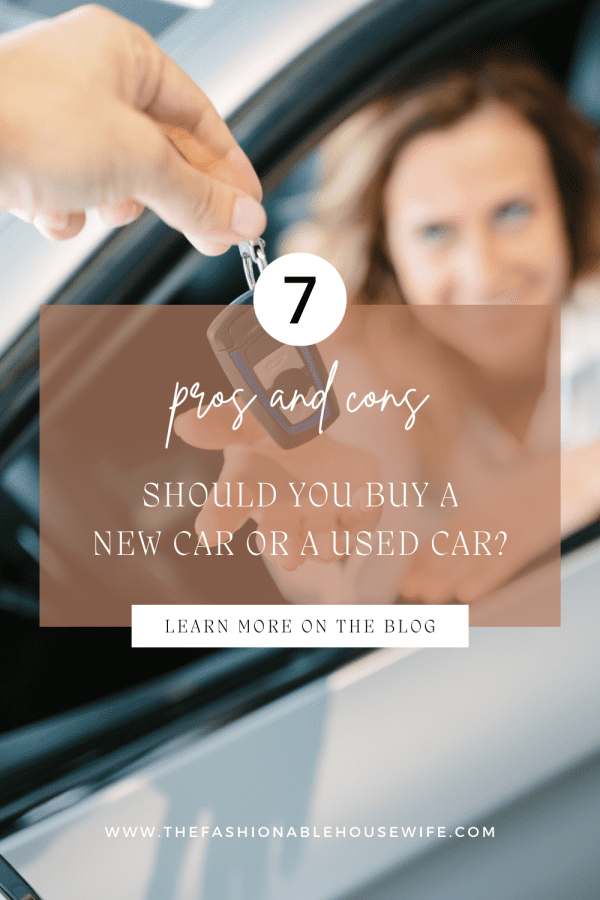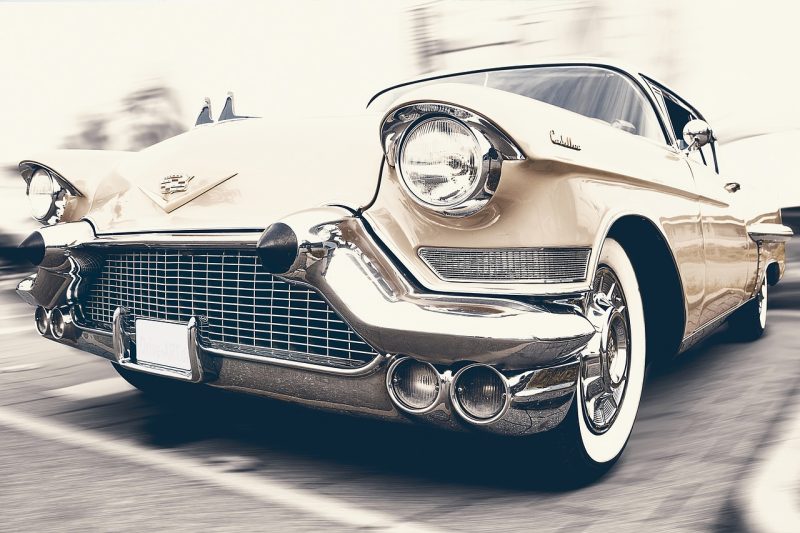Should You Buy a New Car or a Used Car? 7 Pros and Cons of Each Option

Ah, the age-old conundrum – should you choose a shiny new cute car or go for the seasoned and reliable one with tails tucked under its hood?
If you’re currently on the fence about which one to choose, you’re at the right place. Today, we’ll have a look at some of the most common pros & cons of buying new vs. buying pre-owned, and we’ll even throw in a few tips for those who decide to go with the low-cost option.
Pros & Cons of Buying a New Car
A new car comes loaded with promises of long-term use and reliability, but nowadays, it also comes with promises of sustainability and cleaner air. In an effort to keep climate change at bay, most people who buy a new vehicle focus on getting a hybrid or a full electric model.
Even better, Millennials seem to favor car access over ownership. As long as they can take an Uber or a Bolt ride to where they need to go, they’re happy. But, if you’re still set on ownership, here are a few pros and cons to buying new:
Pros
- Factory Freshness: Like the first brew in the morning – untouched, it’s all yours. No hidden stories, no past owners, just an odometer resting at zero.
- Latest Tech and Features: You’re getting the full buffet here, complete with the latest gadgets and safety features. It’s like always choosing the newest smartphone.
- Warranty Peace of Mind: It comes with a security blanket – any unexpected hiccups in performance, and you’re covered.
- Customization Freedom: Choosing details on a new car is like picking toppings at an ice cream parlor – you tailor it to your taste buds, from paint color to rim style.
Cons
- Depreciation Hit: Drive off the lot, and poof! The value drops quicker than the coffee temperature on a cold day.
- Higher Overall Cost: The price tag plus interest can feel like ordering steak at every meal when a burger would do.
- Expensive Insurance Premiums: Paying insurance on new cars is like buying extended warranties on all your gadgets – necessary, but the costs add up.

Pros & Cons of Buying a Used Car
The main reason for buying a used car is that you can get a pretty good deal. Still, depending on your luck, you may have to spend the money you save on the price tag on repairs and maintenance. So, do be careful!
Pros
- Depreciation’s Silver Lining: Let someone else take the depreciation dive. You just enjoy the ride without its value plummeting as soon as the rubber meets the road.
- More Car for Your Dollar: Stretch those dollars further by scoring a higher-end car for the price of an entry-level newbie.
- Lower Insurance Rates: Insuring older models can be easier on your pocketbook.
- Vehicle History Reports Give Clues: It’s no crystal ball, but reports can help you avoid lemons. Plus, you get to play detective before taking the plunge.
Cons
- Reliability Roulette: You might hit the jackpot or get stuck with a dud. The crystal ball’s murky when it comes to long-term reliability.
- Warranty Woes: If you’re out of warranty coverage territory, brace yourself for potential repairs that’ll jostle your budget.
- Outdated Tech and Features: You may need to forgo some bells and whistles, but if you don’t mind having a cassette player instead of a BT-integrated system, then it’s all good.
How to Keep Your Peace of Mind When Buying a Used Car
Sometimes, buying used is all you can afford. But does this mean you have to live in fear of your old girlie breaking down in the parking lot at the local supermarket? If you’re paying attention when making your selection, you shouldn’t have to worry (too much).
Here’s how to keep your cool and ensure you’re picking a trusty steed rather than inheriting someone else’s headache:
Buy From a Reputable Dealership
Sure, the cars are a bit more expensive, but they are also certified and checked by experts before you get to do a test drive. For instance, at EchoPark Automotive, you only get to buy quality used cars that have been thoroughly inspected and reconditioned.
Of course, you can also enlist a trustworthy mechanic to inspect every nook and cranny. However, when you buy from an authorized dealer, you also receive a solid warranty and the chance to return it if you don’t click with the car in the first few days of ownership.
Do Your Research
If you decide to skip the dealer and buy directly from the owner, arm yourself with knowledge. Investigate which models age like fine wine and which are known for souring before their time.
Also, check the Vehicle History Report – this little document is like a biography of your potential ride as it shows past accidents or floods that might foreshadow future troubles.
Secure a Solid Insurance Quote
Before inking any deal, get an insurance quote to see how your candidate affects premiums. It should go without saying, but look for vehicles that don’t make your premium jump with every bump in the road.
Also, since you’re buying used, keep in mind that you can (and should) negotiate. More often than not, price tags on used cars are starting points waiting for well-versed bargaining to shape them into fair deals.
Wrap Up
At the end of the day, it all depends on what you want to achieve. If you’re set on that new car smell and have the budget, go for it. A new (preferably fully electric) car can save you a lot of hassle in the future.
On the other hand, if your budget is tiny and you need 4 wheels to take you here and there, a pre-loved car can do the job. Just do your research and make sure the vehicle has been inspected by a specialist you trust.

